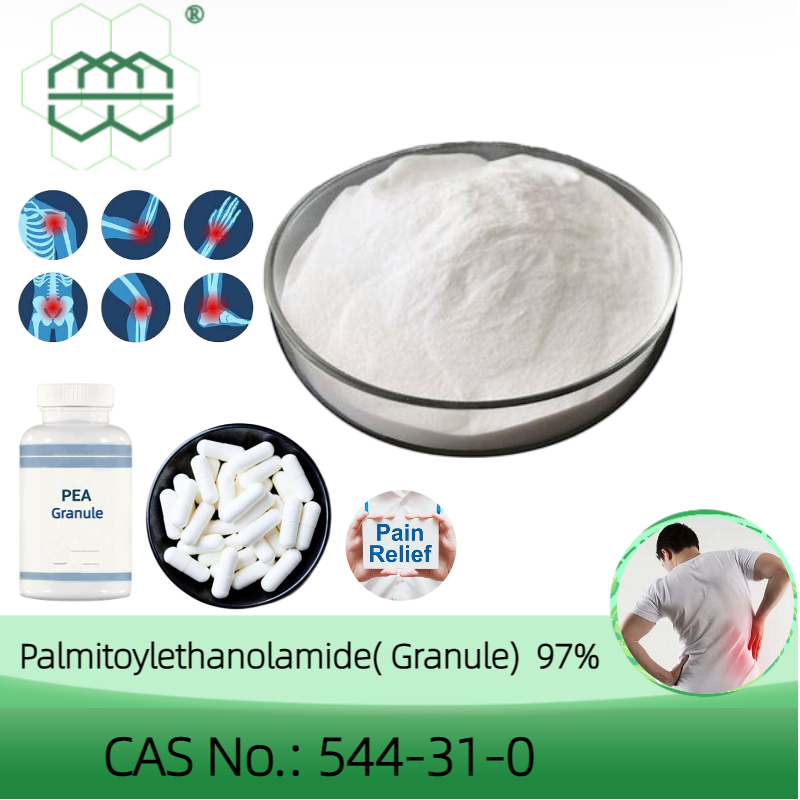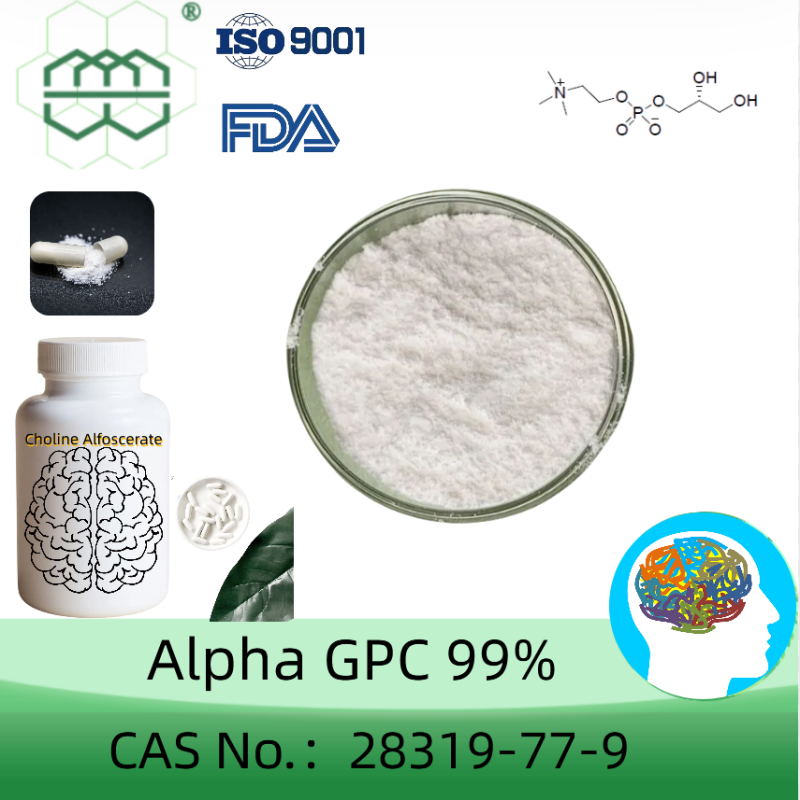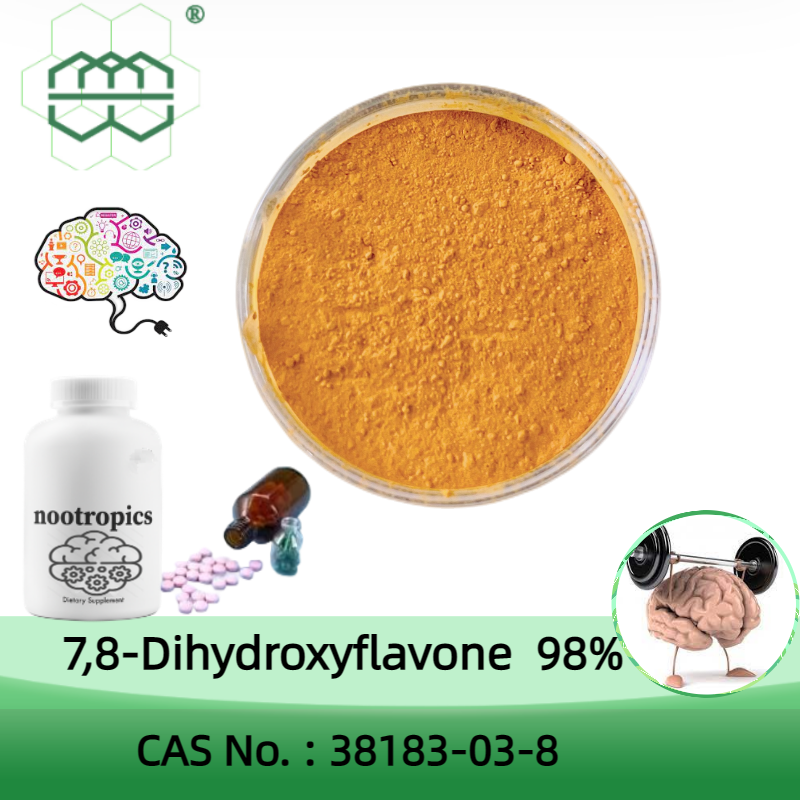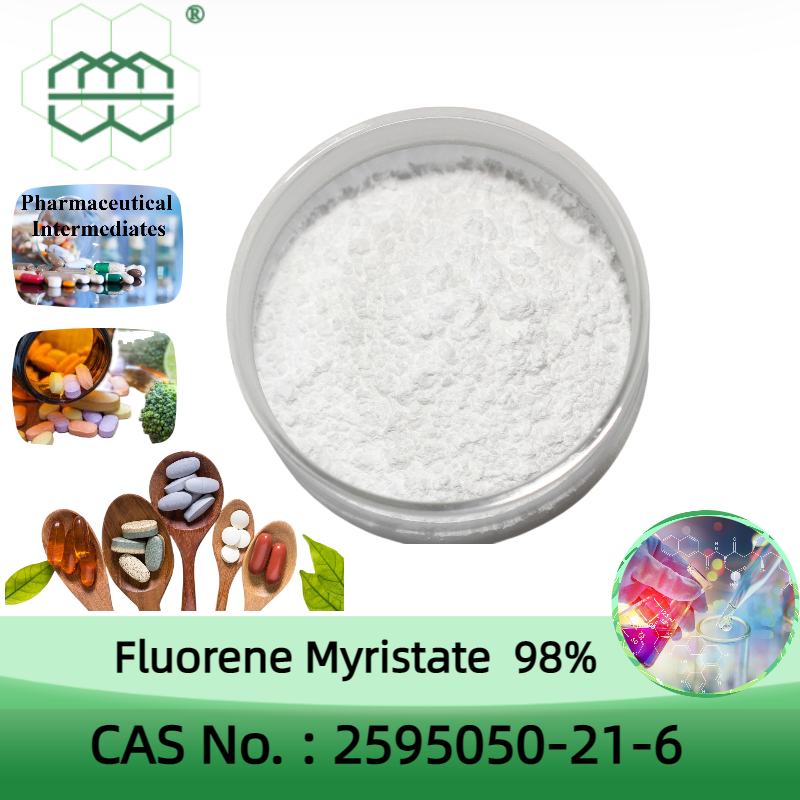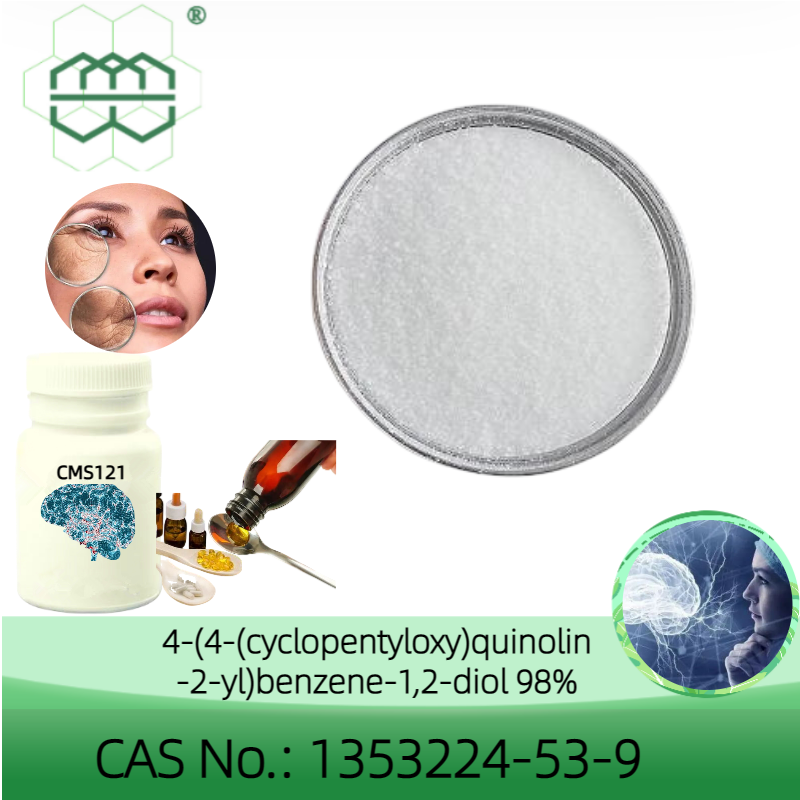| Product name | PEA |
| Other name | N-(2-HYDROXYETHYL)HEXADECANAMIDE; N-HEXADECANOYLETHANOLAMINE; PEAPALMIDROL; PALMITYLETHANOLAMIDE; PALMITOYLETHANOLAMIDE |
| CAS No. | 544-31-0 |
| Molecular formula | C18H37NO2 |
| Molecular weight | 299.49 |
| Purity | 97.0% |
| Appearance | White granulated Powder |
| Packing | 1kg/bag ,25Kg/ drum |
| Application | Raw materials of health care products |
 PEA is a natural fatty acid amide formed from ethanolamine and palmitic acid, It is also found in animal guts, egg yolks, olive oil, safflower, soy lecithin, peanuts and other foods. PEA is an organic synthesis intermediate and pharmaceutical intermediate, which can be used in laboratory research and development process and chemical pharmaceutical research and development process. PEA is an endocannabinoid receptor agonist. PEA has a wide range of potential clinical applications, but its research and popular uses mainly focus on the anti-inflammatory and analgesic effects of low back pain, sciatic nerve pain, osteoarthritis and other diseases. It belongs to the lipid medium and n-acylethanolamine family. PEA inhibits the release of pro-inflammatory mediators from activated mast cells and prevents recruitment of activated mast cells at nerve injury sites. PEA is an endogenous fatty acid amide, belonging to a class of nuclear factor agonists. It has been shown to bind to nuclear receptors (nuclear receptors) and exert a great variety of biological functions related to chronic pain and inflammation. PEA is technically known as a "resolution-promoting lipid signaling molecule. "PEA affects intracellular central control mechanisms that address inflammation and cellular stress. Preclinical and human studies have also investigated its effects on depression, enhanced mental function and memory, autism, multiple sclerosis, obesity and metabolic syndrome.PEA has been shown to have anti-inflammatory, anti-sensory injury, neuroprotective, and anticonvulsive properties. PEA has been exploring various pain states in people in different clinical trials for inflammatory and pain syndromes. PEA regulates many physiological processes, including pain perception, convulsions, and neurotoxicity.The health benefits of PEA include affecting immune cells that control inflammation, especially in the brain. PEA may help reduce the production of inflammatory substances. But PEA primarily acts on receptors on cells that control all aspects of cell function. These receptors are called PPars. PEA and other compounds that help activate PPArs can reduce pain, as well as increase metabolism by burning fat, lower serum triglycerides, raise serum HDL cholesterol, improve blood sugar control and help with weight loss.
PEA is a natural fatty acid amide formed from ethanolamine and palmitic acid, It is also found in animal guts, egg yolks, olive oil, safflower, soy lecithin, peanuts and other foods. PEA is an organic synthesis intermediate and pharmaceutical intermediate, which can be used in laboratory research and development process and chemical pharmaceutical research and development process. PEA is an endocannabinoid receptor agonist. PEA has a wide range of potential clinical applications, but its research and popular uses mainly focus on the anti-inflammatory and analgesic effects of low back pain, sciatic nerve pain, osteoarthritis and other diseases. It belongs to the lipid medium and n-acylethanolamine family. PEA inhibits the release of pro-inflammatory mediators from activated mast cells and prevents recruitment of activated mast cells at nerve injury sites. PEA is an endogenous fatty acid amide, belonging to a class of nuclear factor agonists. It has been shown to bind to nuclear receptors (nuclear receptors) and exert a great variety of biological functions related to chronic pain and inflammation. PEA is technically known as a "resolution-promoting lipid signaling molecule. "PEA affects intracellular central control mechanisms that address inflammation and cellular stress. Preclinical and human studies have also investigated its effects on depression, enhanced mental function and memory, autism, multiple sclerosis, obesity and metabolic syndrome.PEA has been shown to have anti-inflammatory, anti-sensory injury, neuroprotective, and anticonvulsive properties. PEA has been exploring various pain states in people in different clinical trials for inflammatory and pain syndromes. PEA regulates many physiological processes, including pain perception, convulsions, and neurotoxicity.The health benefits of PEA include affecting immune cells that control inflammation, especially in the brain. PEA may help reduce the production of inflammatory substances. But PEA primarily acts on receptors on cells that control all aspects of cell function. These receptors are called PPars. PEA and other compounds that help activate PPArs can reduce pain, as well as increase metabolism by burning fat, lower serum triglycerides, raise serum HDL cholesterol, improve blood sugar control and help with weight loss.


